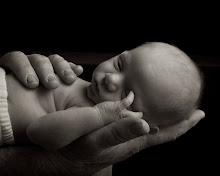 |
| Photo courtesy of stock.xchng |
Hello, dearies! After a touch of R&R, I’m back for a bit of Q&A. It seems that a dear friend is at a loss; she’s come up against a crop of royal characters and is anxious to ensure that there’s no mix-up between Queens and queens. Off we go to the CMOS, trailing our cloth of gold behind us.
When dealing with titles and offices, the general rule is that “civil, military, religious, and professional titles are capitalized when they immediately precede a personal name and are thus part of the name.”
There are, naturally, exceptions to this; after all, people have been known to wear white after Labor Day. It stands to reason that the world of writing has few hard-and-fast rules. For the time being, we’ll stick with the use of royal titles.
If you’re using the word alone, such as the queen of Denmark or the sharif of Mecca, you may omit the capital. But, when used as a title, these same words “form an integral and … permanent part of a person’s name and are therefore usually capitalized.” Prince Thomas, Lady Elaine, and so forth are examples. British usage allows for the term duke to be capitalized for royal dukes but not for nonroyal dukes.
There are a number of special cases that go along with the many layers of British titles. For example, the wife of an unspecified earl would be called the countess, while the Countess of Shaftesbury is appropriate when speaking of the lady herself. The baronet is called Sir Whatsis Name, and his wife is known as Lady Name. Their daughter would be known as the Honourable Whatser Name. For a comprehensive look at styles and titles, have a peek at Burke’s Peerage, Baronetage, and Knightage.
Since many royals have a full style and title longer than most of my hemlines, honorifics and short but respectful forms of address have evolved. These are always capitalized, which makes for at least one easy-to-remember rule. Your Majesty, Your Royal Highness, Your Excellency—oh, dear. It appears that I wrote too soon. The honorifics sir, ma’am, my lord, and my lady are not capitalized.
Well! Now that we’ve got that cleared up, I’m off in search of my lavender sachets. Although Mother Nature dropped snow on us yesterday, I’m still hoping for spring. Time to pack away the heavy coats and sweaters and bring out the cotton tops and denim. Keep your fingers crossed for warmer weather, and remember: a well-turned phrase is always in style!
 |
| Photo courtesy of Darrick Bartholomew
In direct protest against miserable winter weather, the Style Maven has been ordering spinning fiber in bright colors and bulk quantities. You can read about her latest yarn mishaps by visiting The Procraftinator.
|


Thank you, dear Style Maven. It appears, though, that one must make the (difficult) call between using the correct style and maintaining consistency. In my book I have many instances in the same paragraph, or even the same sentence, where one character is addressed as "Your Highness" and another character is addressed as "My Lady" or "Milady", which I've chosen to capitalise for the sake of consistency.
ReplyDeleteConsistency, whether in writing or in sauces, is important. :)
DeleteThanks for this, a useful reminder. Oh how tempting, though, to rant about the injustice, elitism and class warfare surrounding such titles: another place, another time, perhaps. Just one point, in case of confusion: sir, as a generic, but Sir John for the individual.
ReplyDeleteEntirely correct, good sir. ;)
DeleteAnd then there is the issue of noblesse oblige which is the foundation for real royalty - honorifics be damned. In my pompous opinion (IMPO).
ReplyDeleteWhile there have been many rather colorful titles used to reference us, we are most comfortable with His Excellency.
ReplyDeleteI prefer Her Royal Loftiness. :)
DeleteI have a list of peerage titles for research on a book, it is quite entertaining to see who ranks above whom. Thanks for the tip on how to use them properly. We wouldn't want to offend any of their sensibilities.
ReplyDeleteI have a similar list to the one Diana referred to. Of course, I've been studying English history since Grade Six, so it's not a big surprise.
ReplyDeleteHmmm...what's that song by Lorde? "Royals"? Since I'll never be one and am not very likely to include the aristocracy in my current roster of novels waiting to be completed, I think I'll leave this confusion to the rest of you. However, should I one day choose to write a historical fiction piece set in the UK or other location ruled by a monarchy, I shall surely reference this article.
ReplyDeleteVery interesting, Style Maven. No one who hasn't done it appreciates the amount of research that goes into creating a great—and technically correct—story. :-)
Good thing I write contemporary novels set in the USA! Much easier.
ReplyDeleteI'm with Morgan! I have enough trouble with 'sir' and 'ma'am' in my contemporaries.
ReplyDeleteThis is so useful, Madam Style Maven! (As opposed to the Style Maven who is a madam.) Writers get this wrong all the time. You make learning such things FUN! :)
ReplyDelete